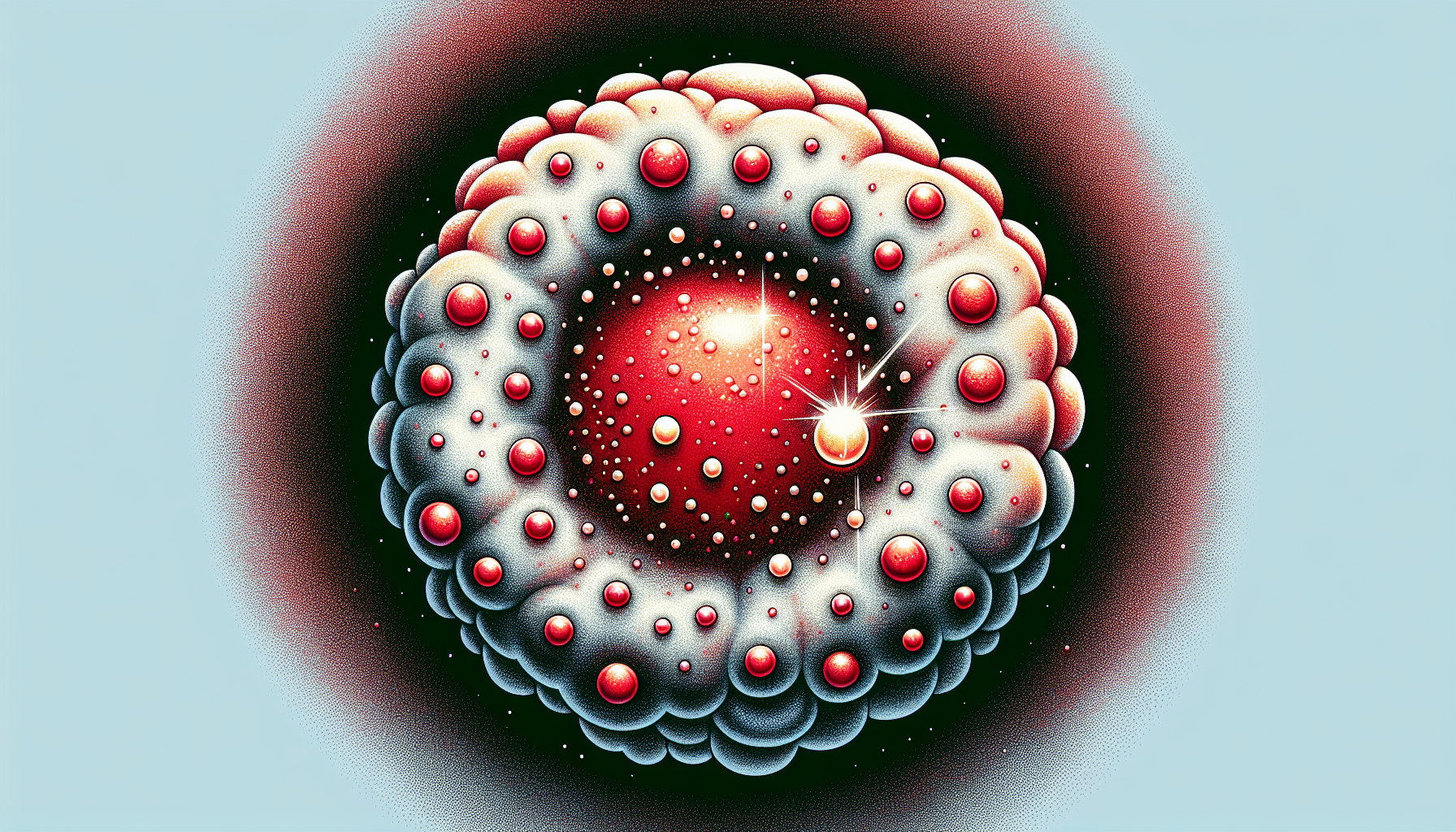Have you ever wondered what happens to the pus in a pimple if you resist the urge to pop it? It’s a common dilemma that many of us face, and it’s worth knowing the answer. When you leave a pimple alone, the body’s natural healing process takes over. The pus, which is a mixture of bacteria, dead skin cells, and white blood cells, is gradually reabsorbed by the body. While it may take a bit longer for the pimple to heal completely, leaving it untouched can prevent the risk of scarring and further inflammation. So next time you face this dilemma, remember that sometimes it’s best to let your body do its thing and let the pus find its own way out.
Pimple Basics
Pimples, also known as acne, are a common skin condition that affects many people at some point in their lives. They occur when hair follicles become clogged with oil, dead skin cells, and bacteria. These clogged follicles can lead to the formation of pimples, which are characterized by redness, inflammation, and the presence of pus. Understanding the basics of pimples is crucial in order to know what happens when you don’t pop them.
What is Pus?
Pus is a thick, yellowish substance that is comprised of dead white blood cells, bacteria, and tissue debris. It is the body’s natural response to infection or inflammation and serves as a defense mechanism to help fight off infection. When a pimple forms, the body’s immune system sends white blood cells to the affected area to combat the bacteria, leading to the accumulation of pus.
Why Do Pimples Form?
Pimples form when the hair follicles in your skin become blocked. This blockage can be caused by a variety of factors, including excess oil production, dead skin cells, hormonal changes, or bacteria. When the follicles become clogged, it creates an ideal environment for bacteria to thrive, leading to inflammation and the formation of a pimple.
What Happens When You Pop a Pimple?
When you pop a pimple, you apply pressure to the affected area, causing the pus to be released from the follicle. This may provide temporary relief and the appearance that the pimple has gone away. However, popping a pimple can have numerous negative consequences, which we will discuss in the next section.
Disadvantages of Popping Pimples
Although it may be tempting to pop a pimple, it is generally not recommended. Popping a pimple can lead to the spread of bacteria and further inflammation, making the pimple worse or even causing it to become infected. Additionally, popping a pimple can result in scarring and pigmentation issues, which can be difficult to treat. It is best to resist the urge to pop a pimple and allow it to heal naturally.
What Happens if You Don’t Pop a Pimple?
If you resist the urge to pop a pimple, the body’s natural healing process will eventually take place. The pimple will go through different stages of healing, starting with a decrease in inflammation and redness. As the body’s immune system continues to fight the infection, the pus will gradually be reabsorbed back into the body. The pimple will eventually flatten out and fade away without leaving a scar or mark.
The Healing Process
When you don’t pop a pimple, the body utilizes its own natural healing mechanisms to resolve the issue. The first step in the healing process is reducing inflammation and redness. Over time, the body’s immune system will continue to attack the bacteria and clear the pus from the affected area. As the infection subsides, the skin around the pimple will slowly return to its normal state.
The Role of White Blood Cells
White blood cells play a crucial role in the healing process of a pimple. They are the body’s first line of defense against infection and work to eliminate bacteria and foreign substances. When a pimple forms, white blood cells are dispatched to the affected area to fight off the infection. These cells engulf and destroy the bacteria, which leads to the production of pus. By allowing the body’s immune system to do its job, you give the white blood cells the opportunity to fight off the infection naturally.
Natural Drainage of Pus
If you don’t pop a pimple, the pus will naturally drain on its own. The body has a sophisticated network of lymphatic vessels and nodes that help remove waste and fluid from tissues. These vessels carry the pus away from the pimple and transport it to the lymph nodes, where it is filtered and eliminated from the body. This natural drainage system ensures that the pus is safely removed without causing further infection or complications.
Other Factors to Consider
While not popping a pimple is generally recommended, there are other factors to consider in the healing process. Keeping the affected area clean and practicing good skincare hygiene is essential. Gentle cleansing and avoiding harsh products can help prevent further irritation and promote faster healing. Additionally, maintaining a healthy diet, staying hydrated, and managing stress levels can contribute to overall skin health and the prevention of future breakouts.
In conclusion, if you resist the temptation to pop a pimple, the pus will naturally be reabsorbed by the body through its lymphatic drainage system. Allowing the pimple to heal on its own minimizes the risk of infection, scarring, and pigmentation issues. Remember to practice good skincare habits and be patient, as the body’s natural healing process takes time. By taking care of your skin and understanding the consequences of popping pimples, you can support the health and appearance of your skin in the long run.
